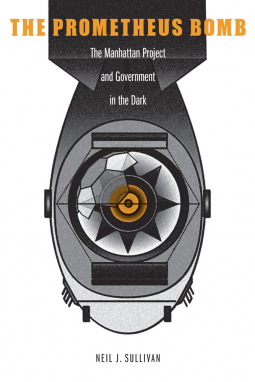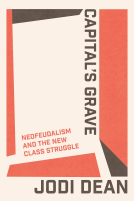
The Prometheus Bomb
The Manhattan Project and Government in the Dark
by Neil J. Sullivan
This title was previously available on NetGalley and is now archived.
Send NetGalley books directly to your Kindle or Kindle app
1
To read on a Kindle or Kindle app, please add kindle@netgalley.com as an approved email address to receive files in your Amazon account. Click here for step-by-step instructions.
2
Also find your Kindle email address within your Amazon account, and enter it here.
Pub Date Dec 01 2016 | Archive Date Nov 22 2016
University of Nebraska Press | Potomac Books
Description
The Manhattan Project was the first example of a new type of choice for congressmen, presidents, and other government officials: life and death on a national scale. From that moment, our government began fashioning public policy for issues of scientific development, discoveries, and inventions that could secure or threaten our existence and our future. But those same men and women had no training in such fields, did not understand the ramifications of the research, and relied on incomplete information to form potentially life-changing decisions.
Through the story of the Manhattan Project, Neil J. Sullivan asks by what criteria the people in charge at the time made such critical decisions. He also ponders how similar judgments are reached today with similar incomprehension from those at the top as our society dives down the potential rabbit hole of bioengineering, nanotechnology, and scientific developments yet to come.
Advance Praise
“An absorbing account of perhaps the most consequential, yet casually made, policy decisions in American history. Beautifully written, the book conveys the high drama, stumbling pace, and terrible, unethical risks behind the development of the atom bomb.”—E. S. Savas, professor of public affairs at Baruch College and former assistant secretary for policy development and research in the U.S. Department of Housing and Urban Development for President Ronald Reagan
Available Editions
| EDITION | Hardcover |
| ISBN | 9781612348155 |
| PRICE | $29.95 (USD) |
Links
Featured Reviews
 David W, Media/Journalist
David W, Media/Journalist
The Prometheus Bomb tells the story of the development of the atomic bomb. But it’s different. It’s about how they pulled this off in the context of and despite the United States government. There are a lot of references to James Madison and The Federalist Papers he wrote, and how they fail to reconcile the Manhattan Project. The differences between the post-revolutionary war period and WWII couldn’t be much starker, and Madison’s ideals do not necessarily fit Roosevelt’s reality. FDR built the first “black box”, top secret agency to create the world’s first nuclear anything. It’s not a golden precedent. And Madison can be forgiven for not accounting for that in his vision of ideal government. So can FDR.
FDR had no clue about nuclear weapons. He relied completely on competing scientists. His attitude was to try everything, because we only needed one thing to work. So the Manhattan Project took on scientists and engineers, built facilities in New York City, Hanford Washington, Oak Ridge Kentucky and Los Alamos New Mexico. It quickly took on an initial 40,000 employees in a top secret project – certainly secret from Congress. No one knew if nuclear fission could actually produce a serviceable bomb, or if that bomb could be made small enough to deliver. They didn’t know what sort of fuel would be best. They were literally making it up as they went along. They all had ideas. And questions. And fears.
One fear they didn’t have was environmental. Today, Hanford is a gigantic ecological disaster area that would cost $150 billion to clean up, even more than 30 miles away, well into Oregon.
The book is chock full of questions. What ifs and if onlys and why didn’ts and it might have been differents. It’s like a high school teacher challenging students to take an interest. And it’s not a neutral telling, either. Sullivan injects his opinions everywhere (at one point chiding the 30 year old Woodrow Wilson that “he should have known better”). Second guessing and hindsight are the order of the day in The Prometheus Bomb. It is very much an “alternative history”. Sullivan breaks no new ground here.
It ends with a call to elect people sufficiently educated and smart to understand the science and the scientists that push us in new directions. Our electeds should be those “who have the intelligence, emotional makeup, and character to discern the public interest.”
David Wineberg
 Jim R, Reviewer
Jim R, Reviewer
According to a synopsis, Sullivan "asks by what criteria the people in charge at the time made such critical decisions. He also ponders how similar judgments are reached today with similar incomprehension from those at the top as our society dives down the potential rabbit hole of bioengineering, nanotechnology, and scientific developments yet to come."
On the people at the time, yes. For "today", not really. Sullivan does do a good job reporting on the story behind the bomb, culled from other accounts, biographies, and autobiographies of the key players. He liked to cast the governing styles and conditions against the Hamiltonian and Madisonian Constitutional objectives.
As a narrative history, quite good - better in my opinion than Brighter Than a Thousand Suns. As a commentary, a bit lacking. And, also in my opinion, that is not a bad thing.
Readers who liked this book also liked:
John Kotter; Holger Rathgeber
Business, Leadership, Finance, Nonfiction (Adult)
Dominic Pettman
Health, Mind & Body, Nonfiction (Adult), Politics & Current Affairs









